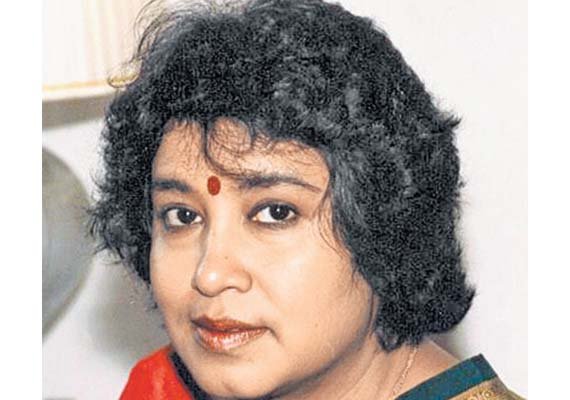New Delhi: Bangladeshi author Taslima Nasrin says she did not criticise Islam in her controversial novel “Lajja” and the fatwa against her is because of her criticism of the religion in many of her other books.
“Many believe that I have criticised Islam in ‘Lajja' and the Muslim fundamentalists of Bangladesh have issued a fatwa against me - both untrue. I have not criticised Islam in ‘Lajja' and the fatwa is not because of Lajja. The fatwa is because I have criticised Islam in many of my other books,” she says.
“'Lajja' can be seen as a symbol of protest. It is a protest against the violence, hatred and killings that are going on all over the world in the name of religion,” Nasrin writes in the preface of a new English translation of “Lajja” brought out as a special 20th anniversary edition.
The fresh edition, translated by activist-writer Anchita Ghatak, is published by Penguin Books India.
52-year-old Nasrin says “Lajja” will remain relevant as long as the incidents described in it continue to happen and as long as there is conflict between people of one religion and another.
According to her, “Lajja” does not speak of religion or hate, it speaks of humanity and love.
A savage indictment of religious extremism, “Lajja”, written in 1993, was banned in Bangladesh but became a bestseller in the rest of the world.
It tells the story of the Dattas who have lived in Bangladesh all their lives. Despite being members of a small Hindu community, they refuse to leave their country. But their world begins to fall apart after the demolition of the Babri Masjid at Ayodhya on December 6, 1992.
Nasrin had to leave Bangladesh in 1994 in the wake of death threat by fundamentalist groups for her alleged anti-Islamic views.
She is now a citizen of Sweden. She has been getting Indian visa on a continuous basis since 2004. She had been living in exile since 1994 and has lived in the US, Europe and India in the last two decades.
However, on many occasions she had expressed her wish to live in India permanently, especially in Kolkata.
The writer had to leave Kolkata in 2007 following violent street protests by a section of Muslims against her works. Earlier this month, the Centre gave a one-year visa to Nasrin allowing her to stay in India till August 2015.
Nasrin says even today, the “politics of religion does not allow the subcontinent to become civilised” and its people to become truly educated.
“My book is primarily a testament to the savagery of religions in the Indian subcontinent. Relgion drives people to madness, at which point they do not hesitate to bandon even basic humanity.”
Some of her other works include “Dwikhondito”, “Oporpokkho”, “Amar Meyebela” and “Utal Hawa”. Nasrin's works have won her the prestigious Ananda Puraskar in 1992 and 2000.
She has been recognised with the Sakharov Prize for Freedom of Thought from the European Parliament, the Kurt Tucholsky Award from the Swedish PEN, the Simone de Beauvoir Award and numerous other awards and doctorates.

